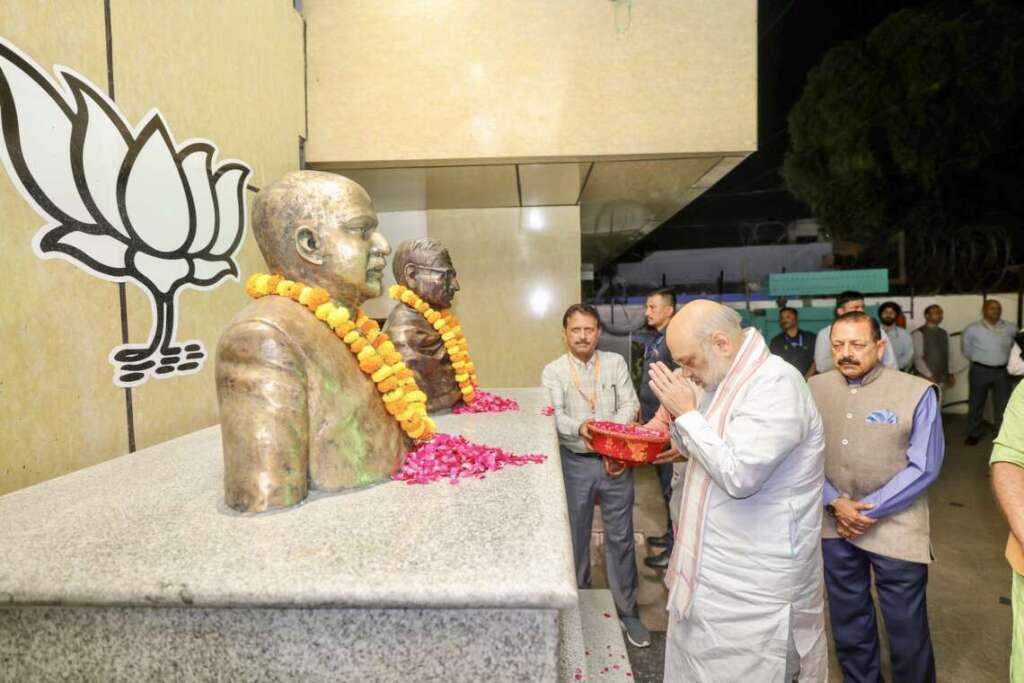Union Home Minister Amit Shah’s visit to Jammu and Kashmir has coincided with yet another blow to the separatist Hurriyat Conference, as one more leader announced his departure from the once-powerful alliance.
Bashir Ahmad Andrabi, head of the Kashmir Freedom Front (KFF), declared his complete dissociation from the separatist politics of the Hurriyat Conference and pledged his loyalty to the Constitution of India. The move comes just as Shah is scheduled to arrive in the Kashmir Valley this afternoon, following engagements in the Jammu division.
In a written statement, Andrabi made it clear that neither he nor his organisation is affiliated with the All Parties Hurriyat Conference or any of its factions. He also warned that any attempt to associate his group with the Hurriyat would invite legal consequences.
“We reject the ideology of the Hurriyat Conference, which has failed to serve the people’s real interests,” Andrabi stated.
His exit marks another step in the steady disintegration of the separatist coalition. Earlier this year, Ghulam Nabi War, chairman of Tehreek-i-Istiqamat, severed ties with the Hurriyat, citing its loss of public trust and political relevance. War, too, had warned against the misuse of his party’s name for separatist propaganda.
Similarly, other groups such as the Jammu & Kashmir Democratic Political Movement (JKDPM) and the Jammu and Kashmir People’s Movement (JKPM) have also publicly abandoned the Hurriyat, expressing faith in India’s democratic institutions and reaffirming their commitment to the national Constitution.

Home Minister Amit Shah has welcomed these developments in recent statements, calling them a “sign of growing national integration” in Jammu and Kashmir following the historic abrogation of Article 370 in August 2019.
The Hurriyat Conference, once seen as the political arm of separatism in the Valley, has seen its influence wane significantly. Formed in 1993 as an umbrella coalition of 26 political, social and religious groups, the Hurriyat gradually lost ground due to internal splits and dwindling public support.
In 2003, the coalition fractured into two factions—one led by the hardline Syed Ali Shah Geelani and the other by moderate Mirwaiz Umar Farooq. Since the constitutional changes of 2019, the Hurriyat has remained largely inactive, with no major calls for shutdowns, street protests, or public resistance.
The absence of street violence, including the once-rampant stone-pelting incidents, has been cited by authorities as a sign of improved law and order in the region. Official data indicates that no separatist-led demonstrations have occurred during national celebrations such as Independence Day or Republic Day in recent years.
As the Union Home Minister continues his three-day visit aimed at reviewing development and security in the Union Territory, the departure of yet another separatist figure underscores a changing political landscape in Kashmir—one increasingly aligned with the Indian constitutional framework.









